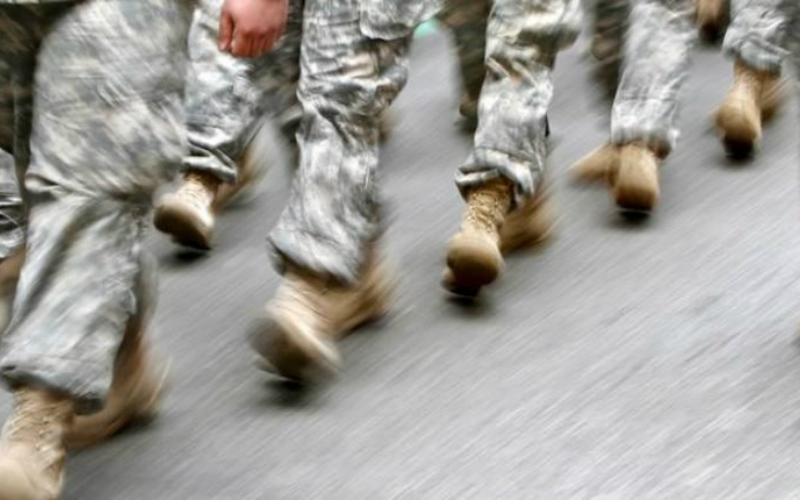Israeli Prime Minister Benhamin Netanyahu last week, having resisted calls throughout the world for Israel to end its war of self-defense, gave perhaps a glimmer of hope to those who would have the Israelis lay down their arms.
“This is not the end of the war, but this is the beginning of the end,” Netanyahu said.
Honestly, it’s looked for some time like the end is nearing. Some estimates say the Israel Defense Forces have killed as many as 20,000 Hamas terrorists and have decimated the terror group’s leadership, their tunnel systems, their command-and-control infrastructure, many of them in munitions.
Israel turned to a new phase of the war and has given Hezbollah, which has attacked northern Israel since the start of the Hamas war, the same treatment.
Yet while Israel turned its attention to Hezbollah and Iran, it never let go of Hamas. Now Sinwar (pictured above) the terror mastermind is dead, and Hamas must appoint new leadership.
Some see the elimination of Sinwar as a hopeful sign for a quick release of the hostages still held by Hamas.
Who’s next for Hamas?
According to a Reuters report, Khalil Al-Hayya, a Sinwar deputy and potential successor, struck a defiant tone last week saying nothing changes and that Hamas will hold the hostages until Israel ends the war and leaves Gaza.
Iran, through its mission to the United Nations, responded to Sinwar’s death with a statement commemorating his life.
Chris Mitchell, the Middle East bureau chief for CBN, appeared on Washington Watch Friday.

“The question many people are asking is, ‘What about the hostages? Could they be released?’" Mitchell posed. "It seems like Israel will continue to do what they can to make sure Hamas is fully defeated, that they won’t be able to govern Gaza anymore and that the hostages are released. Those were the three official war goals back at the beginning of this conflict.”
That’s not exactly what families of the hostages want to hear, but Mitchell told show host Jody Hice the importance of killing Sinwar can’t be overstated.
“It looks like more of the same in the military action and a pessimistic view of the hostages right now," he conceded, "but this is a miracle with Sinwar being killed and so many people believe, many people around the world are praying for the release of the hostages and the defeat of this terror group."

Lt. Col. Robert Maginnis, retired from the U.S. Army and now a senior fellow with the Family Research Council, agrees.
“This is good news. Sinwar was Hamas’ military strategist. He was a true Islamist who saw this as a holy war more than a political war,” he told AFN. "He’s a very significant part of what has been going on for decades in Palestinian territory. It’s good that he’s dead.”
Sinwar's death is also just
If it feels cold and unnatural to celebrate the loss of life, as Israel acts in self-defense, Christians need to overcome that emotion, David Closson, the FRC’s director of its Center for Biblical Worldview, told Hice.
“We need to realize this is a justified state action by the IDF, by the Israeli government. Christians often when we think about these kinds of issues, we think about the Christian tradition of Just War Theory. One of the things the Just War Theory teaches is that war that is legitimate should never be for reasons of self-aggrandizement, kind of what you see Russia doing with Ukraine. War that is just is inherently defensive,” Closson said.

What the world has seen over the last year is Israel going after the perpetrators of the Oct. 7 massacre and bringing them to justice, Closson argued.
“That’s the way we should respond. In a fallen world where horrible actors exist, we should want to see a measure of justice. Christians should respond with gratitude and be very grateful that this happened,” Closson said.
The back story
IDF leaders had been tipped that Sinwar had surrounded himself with possibly as many as 20 hostages and a suitcase full of explosives should the IDF attempt a rescue.
Many believed he had positioned himself near the border with Egypt and was planning an escape attempt of his own, Mitchell said.
Ultimately, he was found not through a special operation with an elite unit but by “reservists and trainees” who spotted a curious number of Hamas terrorists going inside a particular building in Raffa, Mitchell explained.
“They pursued them into that particular building. Then there was a tank shell that was lobbed in there,” he said.
In addition to Al-Hayya, Khaled Meshal, who lives in Qatar and serves as the head of Hamas’ political bureau in exile, could be another candidate, Mitchell said.
Living in exile, Meshal represents the organization at international meetings and maintains communication with foreign governments while unhindered by Israeli travel restrictions. He has survived a previous Israeli assassination attempt.
He may be the last remaining Hamas leader of significance, Mitchell said, and his ties to Qatar could draw the attention of Israel when current war goals have been reached.
“He’s in Qatar, he’s in Dohar, and he’s also living in luxury. It also brings up the question of the influence of Qatar. Many people have questioned that. They’re hosting these Hamas leaders and have been funding Hamas for years, giving them billions of dollars through that time. It remains to be seen what will happen to that leadership,” Mitchell said.














